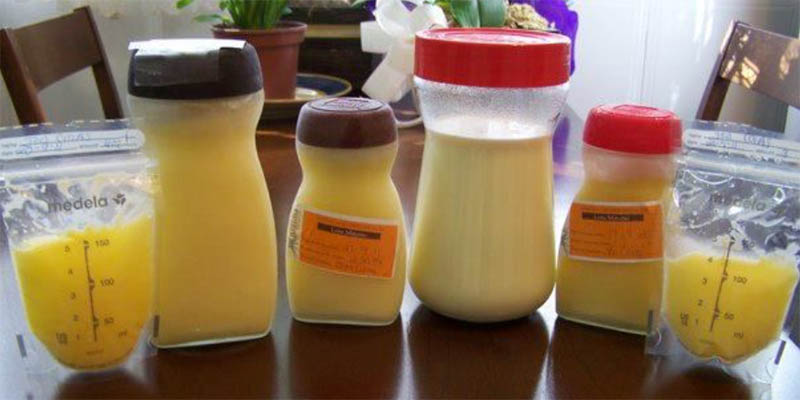I have often heard new moms and dads voice concern over the differences of feeding by bottle, whether it be expressed breast milk or formula, or feeding exclusively from the breast. Sometimes they ask because they are concerned about bottle feeding being easier, and are fearful that introducing bottles too soon will be problematic. Sometimes they ask because they are weighing their options between feeding at the breast or only pumping and bottle-feeding. It is always good when the baby is able to get breastmilk, no matter how they get it. But what’s the difference? Is there one?
Physiologically, bottle-feeding is actually more difficult for a baby than breastfeeding. Is that surprising at all? It’s really quite amazing.
Let’s break it down.
It’s true that a baby uses many muscles to breastfeed. These muscles are gravely important to the natural evolution of the face, mouth, teeth, and overall orofacial development. The masseter muscle, which is what supports the up and down movement of the jaw, is important to facilitating jaw growth and positioning. Bottle-feeding actually reduces the activity of the masseter muscle, reduces jaw movement and may cause the tongue to retract.
While breastfeeding, breathing is combined with sucking and swallowing, usually happening in bursts. This action helps infants manipulate breathing patterns to control and accommodate breathing. Sucking during bottle-feeding can interrupt breathing more frequently, and for a longer duration of time. Breastfeeding also promotes the infant’s ability to breathe through the nose, which aids in heating and filtering air before reaching the lungs. Moreover, air coming in through the nose puts additional pressure on the palate, which encourages and accompanies general growth of facial muscles and body. Creating a vacuum is necessary in both breast and bottle-feeding, so that sucking and swallowing can occur. Geddes et al (2012) found that when feeding by bottle, reduced vacuum application was noted. Weaker suck and decreased vacuum may make it more difficult for a newborn to transfer milk efficiently when back to the breast. http://www.ncbi.nlm.nih.gov/pubmed/22119233
Carrascoza and colleagues (2006) looked at the position of the tongue in both breast and bottle-fed infants. Researchers report that the tongue of bottle-fed infants rests in the mandibular arch, and in the maxillary arch of the breastfed infant. Bottle-feeding causes the tongue to rest in a more unnatural position, which promotes mouth breathing. http://www.ncbi.nlm.nih.gov/pubmed/17003942
In Preterm infants, it has been noted in several studies that breastfeeding actually exerts less energy from the baby. Chen and colleagues (2000) examined preterm babies feeding at both breast and bottle. Oxygen saturation, temperature, heart rate and respiration rate were higher when breastfeeding as opposed to bottle-feeding. Apnea and oxygen desaturation was noted during bottle feeds, but not during feeds at the breast. This suggests breastfeeding being physiologically ideal for babies. http://jhl.sagepub.com/content/16/1/21.short
Babies who are bottle feeding are not using their orofacial muscles in the same way that breastfeeding babies do, making it seem like bottle-feeding is easier for them to do. In actuality, bottle-feeding is more difficult for the newborn because it is not physiologically what they are programmed to do. A newborn’s body works harder to keep warm, regulated and breathing when they are feeding by bottle and not the breast. Not to mention missing out on the bonding and skin to skin time with mom.
As a mom myself, and in working with new mothers, I am aware that giving bottles can sometimes be a necessity for many reasons, but bottle-feeding is not easier for your baby. Every breastfeeding mom should take comfort in knowing that her baby loves being at the breast not just emotionally, but physiologically as well!
Carrascoza, K.C., Possobon, R.F., Tomita, L.M., Moraes, A.B. (2006). Consequences of bottle-feeding to the oral facial development of initially breastfed children. Journal of Pediatrics (Rio J) 82 (5) 395-397.
Chen, C., Wang, T., Chang, H., Chi, C. (2000). The effects of breast and bottle-feeding on oxygen saturation and body temperature in preterm infants. Journal of Human Lactation 16 (1) 21-27.
Geddes, D.T., Sakalidis, V.S., Hepworth, A.R., McClellan H.L., Kent, J.C., Lai C.T., Hartmann, P.E. (2012). Tongue management and intra-oral vacuum of term infants during breastfeeding and feeding from an experimental teat that released milk by vacuum only. Early Human Development 88 (6) 443-9.





